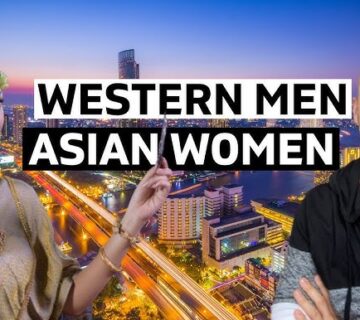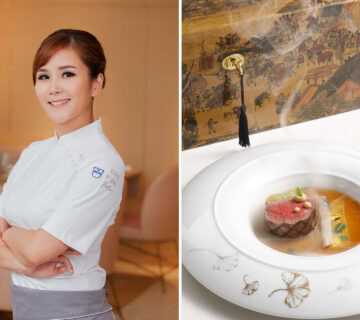In the realm of global perceptions and cultural stereotypes, one widespread belief about Asian women is their exceptional intelligence, often quantified by high IQ scores or academic achievements. This stereotype has both fascinated and intrigued people worldwide, especially within the context of international dating and cross-cultural relationships. But what lies behind this enduring image? Is it grounded in reality or merely a myth shaped by cultural narratives and societal expectations?
This article delves into the intelligence factor associated with Asian women, exploring its origins, the realities of intellectual achievement,
and the implications for how this perception shapes relationships and societal views in 2025.
Understanding the Myth of High IQ Among Asian Women
The stereotype that Asian women (and Asians in general) possess higher IQs than other populations has become a cultural phenomenon, often perpetuated by media, educational statistics, and popular discourse.
Origins of the Stereotype
Several Asian countries consistently rank highly in international academic assessments such as PISA (Programme for International Student Assessment), which measure the math, science, and reading abilities of 15-year-olds. Countries like Singapore, South Korea, Japan, and China often top these charts,
giving rise to the idea that intelligence, as measured by these tests, is inherently higher among Asians.
This academic excellence has been generalized to suggest a naturally higher IQ among Asian populations, including women.
IQ: A Complex and Contested Measure
It is important to understand that IQ scores are only one way to measure certain cognitive abilities and do not capture the full spectrum of intelligence. IQ tests emphasize analytical reasoning, mathematical skills,
and verbal ability but may not fully reflect creativity, emotional intelligence,
or practical problem-solving skills.
Furthermore, intelligence is influenced by an interplay of genetics, environment, education, cultural values, and socioeconomic factors—not just races or ethnicities.
The Role of Culture and Education in Intellectual Achievement
The intelligence stereotype often overlooks the role that cultural emphasis on education and societal support systems play in academic success.
The Cultural Value of Education
Many Asian cultures place a strong emphasis on education as a pathway to success, security, and family pride. From an early age, children (including girls) are encouraged to work hard,
respect teachers, and pursue excellence.
This cultural drive explains part of why Asian women often achieve remarkable academic and professional milestones — not necessarily because of innate intelligence alone but due to persistent effort and societal support.
Parental and Community Support
Asian families frequently invest significant resources and time in their children’s education. This includes tutoring, extracurricular activities, and high expectations for achievement. Such environments cultivate disciplined study habits and resilience.
The emphasis on collective success over individualism also motivates many Asian women to excel academically, contributing further to the stereotype.
Intelligence and Personality Traits Among Asian Women
Beyond academic success, many Asian women display personality traits and emotional intelligence that complement intellectual abilities, making them admired and respected worldwide.
Discipline and Perseverance
Asian women often exemplify discipline and determination—traits that are essential to both academic and personal success. These qualities help them overcome obstacles and maintain consistency in pursuing their goals.
Emotional Intelligence and Social Adaptability
Intelligence is not limit to cognitive abilities; emotional intelligence (EQ) plays a crucial role in managing relationships, stress, and social environments. Asian women are often socially adept, empathetic, and communicative,
traits that enhance both personal and professional interactions.
Impact of the High IQ Myth on Dating and Relationships
The stereotype of “highly intelligent Asian women” influences how these women are perceive in the dating world, sometimes positively but also with challenges.
Positive Perceptions
Western men may feel attracted to the intelligence, ambition, and cultural values associated with Asian women, viewing these traits as indicators of compatibility and partnership potential.
The idea of dating someone smart, responsible, and committed can create high expectations and admiration.
Challenges: Stereotyping and Pressure
However, the stereotype can also impose pressure on Asian women to constantly perform academically or socially. It can lead to unrealistic expectations or pigeonholing that overlooks their individuality.
There is also a risk of fetishization—a reductive view focusing on intelligence as a singular trait rather than appreciating the person as a whole.
Challenging Stereotypes: Embracing Individuality and Diversity
It is essential to move beyond simplistic notions of intelligence based on ethnicity and embrace the individuality and diversity of Asian women’s.
Celebrating a Range of Strengths
Asian women are multifaceted individuals whose talents extend beyond IQ scores—creativity, leadership, kindness, resilience, and more. Recognizing this complexity enriches our understanding and relationships.
Promoting Equality and Respect
Respecting Asian women as complete individuals—valued for their choices, personalities, and diverse abilities—fosters healthier intercultural relationships and breaks down harmful stereotypes.
A High-Authority Resource for IQ and Cultural Insights
For further reading on intelligence testing, cultural influences, and their implications, the American Psychological Association provides detailed, research-based resources:
https://www.apa.org/science/about/psa/2019/06/intelligence-cultural-context [High-authority link]
Read More: What Western Men Find Most Attractive About Asian Brides
Conclusion
The widely held notion of Asian women as inherently high-IQ individuals is a mix of truth, cultural emphasis, and mythologizing. While Asian women often excel academically and professionally, this is rooted as much in cultural values, disciplined effort,
and supportive environments as in genetics or biological determinism.
Understanding this nuance is critical in appreciating Asian women as complete individuals—with intelligence that spans cognitive, emotional, and social dimensions.
In 2025, celebrating this complexity helps foster respectful intercultural dating and promotes a more inclusive view of intelligence beyond stereotypes.








[…] Read More: The Intelligence Factor: Exploring the High IQ Myth About Asian Women […]